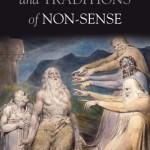We run our website the way we wished the whole internet worked: we provide high quality original content with no ads. We are funded solely by your direct support. Please consider supporting this project.

How the Church is Tempted to “Do Good”
The previous post spoke of God’s call to the church to be resident aliens: a holy, distinct people who are set apart and peculiar when compared to the patterns of the world. The holiness of God’s kingdom is cruciform love, which constitutes our distinct witness to the world. Preserving this holiness and resisting the Devil’s temptation to do good according the patterns of the world is ongoing. When we succumb to Satan’s temptation it only reduces the kingdom of God to another version of the kingdoms of the world.
We are not to be ignorant of this temptation and how it lures us in. Therefore, it is helpful to understand how Jesus himself was tempted to do “good.” The Devil tempted Jesus by offering him all the kingdoms of the world without having to go to the cross (Luke 4:6-8). In essence, the Devil was offering him the very thing he came to get, for Jesus came for the people of the world, and people are always subjects of some kingdom or other. To rule the people, all Jesus had to do was submit to the “god of this age” and leave him in place as its ruling authority.
Without having to suffer and die, Jesus could have immediately taken a position as the functional lord of all these kingdoms. Jesus could have quickly overpowered evil in all societies. He could have immediately alleviated much, if not all, suffering and created a kingdom of the world that enacted perfect law, order, and justice. Not only this, he would have thereby fulfilled all Israel’s expectations of what a messiah was supposed to be.
The Devil’s temptation would not have been a genuine temptation for Jesus unless there was a lot of “good” wrapped up in it. The same is true for us today. However, if Jesus would have taken the course of action offered by Satan, Jesus’ rule would have been part of Satan’s system of domination, which currently runs the world.
Jesus refused this “good” approach. He did not come to make the kingdom of the world a new and improved version of itself. He came to transform “the kingdom of the world” into “the kingdom of our Lord and of his Messiah” and thereby establish the rule of God.
As tempting as it was, Jesus was not going to allow the radical distinctiveness of the kingdom of God to be co-opted by the demonically ruled kingdom of the world—even if the immediate results were “good.” John Howard Yoder once wrote: “The cross is not a detour or a hurdle on the way to the kingdom. It is the kingdom come.” Sacrificial love, therefore, isn’t simply an effective way to make the world a better place, it is the “set apart” kingdom of God on earth! When one obeys God and loves as Christ loves in a kingdom-of-the-world context, it always looks like this.
This is why everything hangs on not allowing it to become co-opted by immediate, obvious, and self-serving kingdom-of-the-world methods, however good the immediate consequences may appear.
—Adapted from The Myth of a Christian Nation, pages 73-75.
Category: General
Tags: Cruciform Theology, Myth of a Christian Nation
Related Reading

Quotes to Chew On: Conflicting Depictions of God
“This is something like the way I believe we should respond when we encounter biblical narratives that depict God doing things we can’t imagine Christ doing. For example, I can’t for a moment imagine Jesus—the one who made refusing violence and loving enemies a condition for being considered a child of God—commanding anyone to mercilessly…

The God Who Stoops
The way that one imagines God can be thought of along the lines of a Rorschach test. That is, I submit that the way a person imagines and experiences God says at least as much about that person as it does God. The more estranged people are from God, the more their knowledge of him is…

God of Sense and Traditions of Non-Sense
As the title suggests, in his book, God’s Problem: How The Bible Fails to Answer Our Most Important Question – Why We Suffer, Bart Ehrman argues that the Bible has nothing compelling to say about the problem of evil. Well, I just put down a beautifully written four-hundred and fifty page book that compellingly argues…

The Problem with Christocentrism
As we’ve discussed in the previous posts, there has been a growing move toward a Christocentric orientation in theology since Barth, and especially over the last fifty years. I enthusiastically applaud this trend, for I’m persuaded it reflects the orientation of the NT itself, so far as it goes. The trouble is, it seems to…

Did God Assist the Israelites in the Violent Battle with the Amalekites? (podcast)
Greg keeps his hands in the air as he battles against Old Testament interpretations that portray God as violent. http://traffic.libsyn.com/askgregboyd/Episode_0748.mp3

Podcast: How Do You Make Sense of the Killing of Ananias and Sapphira?
Greg considers: “Who actually killed Ananias and Sapphira.” This ancient murder mystery has enormous theological implications! Listen as Inspector Boyd hunts for clues and builds a most compelling case. http://traffic.libsyn.com/askgregboyd/Episode_0108.mp3 Photo credit: jean louis mazieres via VisualHunt.com / CC BY-NC-SA
